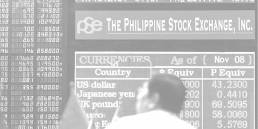What are the different types of stock trading orders?
All stock trades consist of at least two orders—one buy and one sell order—usually with one order to enter the trade, and one or more orders to exit the trade.
A single order is either a buy order or a sell order. An order can be used either to enter a trade or to exit a trade. If a trade is entered with a buy order, then it will be exited with a sell order, and vice versa. For example, if a trader expected the market’s price to go up, the simplest trade would consist of one buy order to enter the trade, and one sell order to exit the trade. Conversely, if a trader expected the market’s price to go down, the simplest trade would consist of one sell order to enter the trade, and one buy order to exit the trade.
Traders have access to many different types of orders according to price and validity, which they can use in various combinations to execute their clients’ trades. With this, a stockbroker’s commission may depend on which type of order an investor prefers to take.
The following explanations will explain each of the order types, and how these orders are used in stock trading.
ORDER TYPES (according to price)
Market Order
Market Order is the buying or selling of stocks without a specified price, or immediately at the prevailing market price when the order is executed, whatever the price may be.
Market order is the simplest and quickest way to get your order completed. It is often subject to the lowest commission since this is the easiest to execute.
For example, if stock ABC’s current market price is Php2,500.00 per share, the investor should be willing to buy or sell at this price level. Although being practiced in some other markets, this type of order is rarely used in the local equities market.
Limit Order
Limit Order is entered with a specified price known as the limit price. This allows investors to buy or sell at their desired buying or selling price levels.
The primary difference between a market order and a limit order is that the stockbroker cannot guarantee that the former will be executed at a specific price.
For example, stock ABC’s current market price is Php2,500.00 per share. If the investor thinks that this price level is too expensive, he may post a lower bid or buying price of Php2,450.00 per share. This means that his order will only be matched if stock ABC’s market price reaches Php2,450.00 per share or if when there are available sellers at Php2,450.00 per share.
Market on Opening/Closing Order
Market on Opening/Closing Order is accepted only during pre-open and pre-close periods and executed at the opening/closing price of the instrument.
Market-to-Limit Order
Market-to-Limit Order is an order entered for immediate execution at the best price with whatever volume available and remaining quantity will be queued as a limit order.
ORDER VALIDITY TYPES (according to time/validity)
Day Order (DAY)
Day Order is valid until the end of the trading day only. If the investor’s buying or selling order is not matched during the day, this will automatically be cancelled and will have to be reposted by/for the investor on the next trading day.
Good Till Cancelled (GTC)
Good Till Cancelled is valid until cancelled by the investor or trader or until it has reached the set expiration date of the security.
Good Till Date (GTD)
Another most frequently used limit order is the Good Till Date which is valid until the date specified by the investor.
Fill-and-Kill (FAK)
The Fill-and-Kill (FAK) Order, also referred to as ‘Execute-and-Eliminate Order’, is valid upon execution. Fill-and-Kill orders require the stockbroker to instantly execute a trade at the quoted market price. If the stockbroker is not capable of doing so, the order is immediately discarded.
VOLUME QUALIFIERS
The following volume qualifiers to the Order types are accepted by the Trading System:
Minimum-Quantity Order
Minimum-Quantity Orders must be executed immediately to the extent of the specified minimum quantity, with any remaining unexecuted portion being added to the Order book, and shall only apply to Limit or Market-to-Limit Order.
Iceberg Order
Iceberg Orders, also referred to as “disclosed quantity orders”, are orders which are successively entered in the Central Order Book, and disclosed to the market at specified tranches. Disclosed quantity shall not be less than the specified percentage set by the Exchange.
Reference: Philippine Stock Exchange (Edge & Academy)




